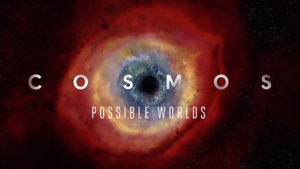
Yes, here we go, another Apple column. Another chance to vent about a company that’s morphed into something else. Another chance to decry its PR strategies, its capricious App Store policies, its famously mercurial founder.
Yet because this column is coming on the heels of so many others who have taken Apple to task in recent weeks, I feel the need to deliver something a little different. I’ve already written about Steve Jobs’ heavy hand on the PR tiller at his company, especially during last year’s health crisis. Nothing seems to have changed in this regard. In fact there’s new evidence that Jobs is still making his media relations people yank their hair out in clumps; his brief yet personal emailed responses to tech bloggers and Mac customers who have quizzed him about the Apple topics du jour — the new App Store restrictions on developers for iPhone OS 4, and the rejection of Pulitzer Prize-winning editorial cartoonist Mark Fiore’s iPhone app.
In the latest round of emails, Jobs has admitted that the Fiore rejection was a mistake and has invited the cartoonist to resubmit his app. Yet he’s also once again connected the Android OS to porn, an attack mode he first unveiled to reporters in person after the iPhone OS 4 launch. Apple wants a clean, well-lit App Store for everybody to enjoy, including kids, so they’re going to be the porn police there. In his email, he said, “We do believe we have a moral responsibility to keep porn off the iPhone. Folks who want porn can buy and [sic] Android phone.”
The previous week, he told a developer who had his app rejected — after it had been initially accepted — why he couldn’t use the suffix “-Pad” in his app’s name. “It’s just common sense not to use another company’s trademarks in your app name,” he wrote.
Unless we’ve missed something in the technosphere, has Apple officially tried to trademark “Pad?” Is there an obligatory joke to be made about a forthcoming Apple brand of feminine hygeine products? And if Apple has taken the moral high ground with adult content on its iPhone, is any of that going to roll downhill soon for users of iPods, iPod touches, iMacs and MacBooks? This may come as a slight shock to those using Apple products in its home court: the San Francisco Bay Area, a place that the late, legendary newspaper columnist Herb Caen dubbed “Baghdad by the Bay” for its culturally open-minded views regarding sex, drugs and sex.
Apple may equate porn with less-restrictive OSes like Androids, but all of this is leading many to equate Apple with heavy-handed business tactics like the kind that made Microsoft’s leadership team such pariahs in Silicon Valley in the mid-’90s. Yet Rick Chapman, Softletter’s publisher and tech media relations guru who wrote In Search of Stupidity: Over 20 Years of High-Tech Marketing Disasters, says everybody needs to jump in their Wayback Machines and set them to the previous decade to tell the entire story.
“Apple was the Microsoft of the 1980s,” Chapman told me. “They were a strongly disliked company. They crushed Digital Research and threatened to sue everyone over the trashcan icons. Until Microsoft rose, it was Apple that got a lot of the evil empire mojo going. Now they’re starting to approach that again. That type of thing takes years to build up, but if it builds and reaches critical mass, it could hurt them.”
Chapman’s comment got me to thinking about my own past dealings with Jobs and Apple. Maybe they’ll give you some understanding into why Jobs and company do the things they do regarding command and control.
It started in 1998; Jobs had been back at Apple for about a year following his exile. I was covering a Macworld in New York for CNBC. I had just started as its tech reporter, and my naivete was on full display. I had neglected to make an interview request with Jobs; I figured I could just walk up to him after he got off the stage, microphone in hand and videographer close by, and fire off a few questions. The PR woman who inserted herself between me and Jobs had a nice laugh about that.
Welcome to Apple’s PR machine, kid. It got better for me, with regular opportunities for interviews with Jobs, where you quickly learned that asking about future products — or anything off-message for Jobs — was an exercise in futility. But that didn’t stop us from asking, and it didn’t stop Jobs from responding as only Jobs can. Example: a strong earthquake had hit Taiwan — and its manufacturing facilities there that made components for Apple computers — on the same day Jobs was talking about a new product (memory escapes me as to the exact nature of it.). What I do remember is that the CNBC anchor and I had asked him about the quake and its effect on Apple’s partners, and Jobs had given us a standard response. But we were told by production people after the satellite link ended that Jobs had cursed loudly as he was taking off his microphone about our quake-related questions, because we dared to ask him to respond to non-Apple news of the day.
Quick cut now to May 2001 and Tyson’s Corner, Virginia. Jobs is about to hold a press conference at a hotel ballroom announcing the opening of the very first real-world Apple Store, and I’m there to cover it for CBS MarketWatch and the Saturday “Early Show.” My photographer has asked me to set up his tripod on the media platform. I do that, turn around to do something else, and when I look back at the tripod, it’s gone. A grizzled burnout of a photog for one of the local Washington, D.C., TV stations had appropriated our spot on the platform. He and I start to get into it — a tad loud, it turns out, and he actually tries to bump me off the platform. I’m getting ready to give him a colonoscopy with a light stand when Jobs appears out of nowhere to play schoolyard monitor with the media. “Hey guys, we’re getting ready to start,” he says, giving us both pointed looks.
I had other opportunities for interviews while at CNN/CNN Headline News, and those conversations went without any hitches. It became a fun game; attempting to phrase questions to Jobs about the competition, the digital landscape and future products without edging into his famous “reality distortion field.” Most of the time he stayed on message. It became clear to me that with Jobs and Apple, it’s all about top-down control, and that’s what we’re seeing now with the company’s attempts to create a user experience for its iPhones that adheres as closely as possible to Jobs’ vision.
However, as we’re also seeing elsewhere in the technology/media landscape, corporations are ceding control of the message thanks to the very digital advancements and Web 2.0 tools that Apple facilitates with its products. Developers are a key part of that process. How can a company that can be so visionary, so innovative when it comes to other aspects of the consumer experience be so tone-deaf and blind to all this, and how it is being viewed by the development community and the technosphere at large? It’s got to be something more than just the Corleone school of management: “It’s not personal, Sonny. It’s strictly business.”
The media loves covering Jobs, it loves covering Apple. But there are signs that now it’s starting to love bashing Apple — just like it did with Microsoft in the 1990s, and how it did with a certain Cupertino-based startup in the 1980s. I think the operative cliche here involves something about those who forget history, etc.
Especially those who forget their own history.
TechNewsWorld columnist Renay San Miguel started his journalism career with his hometown newspaper in Texas in 1979. He moved to television in 1985, anchoring, producing and reporting in Austin, Dallas and San Francisco before joining CNBC as a technology correspondent from 1997 to 2000. Following a stint with CBS MarketWatch, which included filing tech stories for the CBS Early Show, San Miguel joined CNN Headline News in 2001 as an anchor/tech reporter. He also contributed digital content for CNN.com. After his 2007 departure from CNN, San Miguel founded Primo Media and now freelances in television/online reporting and media consultation. San Miguel is host/managing editor for Spark360, which produces news-style paid content for SMBs distributed via branded Web video portals and social media platforms.



















































It would not surprise me to see Apple drop a few Mac computer lines. Like it dropped the computers after Apple in its name. I think Apple has plans to sell Applications and media content to its new designed group of hardware like the iPhone,iPod Touch and new iPad. This is much more profitable then trying to compete with Windows PC computers. Which by the way dwarf Apple in sales world wide. Apple has created hardware that will work on PC’s or Mac’s and thats the key to their success. Do not market just to Mac’s as Apple did for so many years. Market to all computer users.
To suggest that Jobs’ restrictive approach to apps developers is going to hurt Apple is pretty naive.
Check out Apple’s iPhone sales and add in your best guess for the futures sales of the iPad and you quickly understand that anyone capable of and wishing to develop apps for smart phones is going to develop for Apple products even while they complain about the Apple policies which affect them.
The only question mark I face as a potential app developer is the one where I no longer can easily write a ‘generic’ app and use non-Apple tools to convert it for Apple.
But, this again is not a deal killer given the depth of the marketplace Apple provides.